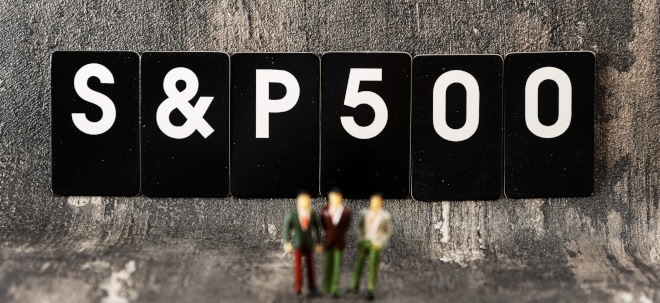Tearful women holding portraits of relatives and friends gathered in the southern Lebanese town of Qana last Friday as men buried the victims of the brutal Israeli offensive in Lebanon.
Sad men and women stood in a large circle as men carried 30 coffins, three of them wrapped with Hezbollah’s yellow flags and the rest draped with the Lebanese national colors, to lay them in their graves.
Below is an interview Democracy Now’s Amy Goodman had with Kathy Kelly, a member of Voices for Creative Non-Violence and the founder of Voices in the Wilderness, after she had visited the site of the worst Israeli massacres in the recent month-long war in Lebanon.
Peace activist Kathy Kelly interviewed many survivors of the Israeli crime in Qana.
AMY GOODMAN: Peace activist Kathy Kelly visited Qana on Saturday and spoke to many survivors and grieving relatives. She is the founder of Voices for Creative Nonviolence and Voices in the Wilderness. She joins us on the phone from Amman, Jordan. Welcome to Democracy Now!, Kathy.
KATHY KELLY: Hello, Amy.
AMY GOODMAN: It’s good to have you with us. Can you describe your visit to Qana?
KATHY KELLY: Amy, on August 17, we have with us a list of massacres that Norman Finkelstein had compiled, and we asked two young men, who very kindly had offered to drive us through the villages in southern Lebanon and act as translators for two days, if they might take us to Qana. And we went to the town and, you know, as soon as you enter, people can point you and there are signs that point you to the site of a massacre that had taken place in 1996, when 105 people taking refuge in a UN camp had been killed. And then, just a very short walk away from that is the place where this latest massacre took place. And as we turned a corner, we realized that we were walking right toward the homes of two of the families who had lost loved ones, and they lived literally right across the road, really not a very wide road at all, from the building that had been hit.
We walked over to the building, and we could see that it was completely demolished. People had taken shelter in the basement of this building. Several children were at play, and they were very friendly toward us. And when we turned around and walked back toward the families, women sitting in mourning, waiting to receive relatives, gestured for us, Sarah and me, to come and sit with them, and our male companions went and sat with the men just next door. And I have to say that I’m then at a very great disadvantage, because both of the translators were gone, but in a way, there wasn’t a lot of translation necessary.
We sat in silence for a long time with the women. Unbearable grief for 18 days, they had borne their grief, waiting for the time when, as you mentioned, the burials could happen. We had seen the graves being dug when we came into town. And two of the women there had lost their children: one, Umm Zayneb, was the mother of Zayneb, a six-year-old girl; the other, Umm Zahara, was the mother of Zahara. And they wanted us to understand that the children had been running back and forth across from this sheltering building back to their homes for days. And they pointed upwards, and still the drone of the surveillance planes could be heard. And certainly we caught their question: couldn't the Israeli planes see that there were children going in and out of that building?
AMY GOODMAN: Kathy, I wanted to play for you the comments of a man here who lost family members in Qana. The victims of the Qana massacre came primarily from two families: the Shalhoub and Hashem families, who had sought refuge in a building in the town. The day after the Israeli air strike, we spoke with a member of one of those families. He is Mike Shalhoub. He runs a restaurant called Grape Leaves in Dearborn, Michigan.
He was born in and grew up in Qana. At the time we spoke to him, initial reports had put the death toll from the attack at near 60. He had just returned from visiting family in Qana.
MIKE SHALHOUB: I was with the kids. We were having a vacation there. You know, I go to Qana. We spend a couple days. Then we go back to the mountains. You know, we go everywhere in Lebanon to have fun. Then, the kids, when I left, they went to Qana, because they love it there. All those little kids died. They were -- used to be their friends. Israel decided to have a war against Lebanon.
Actually, I saw those cousins-They were there, and I hadn’t seen them in a couple years -- two or three years. And we were talking about the old time and, you know, memories. And it choked me up when I heard it on the news. Two brothers -- they were kind of my age -- when I saw them this time, we were talking about what they're doing and how things are going with them. And they just told me they have a construction company, opened a company like a year ago to build houses, and they were doing great. You know, they were just very peaceful people. Those two brothers alone, they lost their kids, too, each one of them. One of them has three kids, and one of them has four kids. They died with them, too, with their wives, except one of the wives stayed alive. She made it. And, you know, she has to live her life now looking at pictures of her husband and kids. It’s very hurtful.
This house wasn’t their house. It was a building under construction. And they were both building it for their cousin from their mom's side. And this house, this is a safer place, because they have underground area. And their houses is around. It’s not like that far. It’s not even half a block’s away from around everyone’s house. But it’s hard to get together, so this way, if anything happened to anybody, everybody, you know, is together on this situation.
And, obviously, that was their last -- and they don’t want to leave, because there was no chance to leave. Telling the people to get out -- you know, army telling the people to get out -- Israel Army, I mean. And then they hit them on the roads. So, when I talk to my brother, he says he talked to them, and he told them to get out of there. And he says, well, they’re not trying to get out of there, because they're afraid they're going to get hit on the road, like what happened in like the city of Dweir. So they decided to be there, and they thought they would be more safer on that side. And, obviously, you know, crazy pilot, that he decided to get his revenge on those kids.
When I was watching the news, I was shocked, so I kept watching to see where it at and where it hit. So then, they say that, you know, it’s a neighborhood of Shalhoub's family. Then I know, it’s my family. You know, I know. I mean, no other reason not to believe this, because we know this area. It’s only us. 90 percent of the majority there is the Shalhoub family.
So that shocked me up. I was -- I don’t know what to do. I even -- I turned the TV off. I disconnected the TV, so my parents would not see that, would not see those kids dying like that. I have to lay it down a little bit at a time for them. I couldn’t get through from here, so my brother -- I called my brothers and just talking to them to see what they’re doing and how they're doing. He brought some of them to Beirut, get them down to Beirut area where it’s safe, you know, safe places. There’s some places, some areas safe, some areas not safe. And I don’t know if any area is going to be safe after this. All we’re asking is for the ceasefire to happen.
AMY GOODMAN: Mike Shalhoub, speaking to us from Dearborn, Michigan. He runs a restaurant there called Grape Leaves. He was born in Qana, talking about his time in Qana this summer, before the attack that killed many members of his family. Kathy Kelly, you come from Chicago, Voices in the Wilderness. Your response, as you just came out of Qana?
KATHY KELLY: Well, I hope that Mike Shalhoub’s words and his suffering will be something that people can hold in their hearts. I think it's very difficult for people in the United States to fully understand the massive, massive tragedy that has befallen people in many small villages just like one which he described. You know, the mothers that we sat with sorted through newspapers bearing the pictures of their children and one man holding little Zayneb’s lifeless body aloft. It took five hours for ambulances to get to the site of the massacre.
And I think that it’s also important to read and study the draft report that Anthony Cordesman has issued called a “Preliminary Report on ‘Lessons’ of the Israeli-Hezbollah War.” And he’s a very seasoned military strategist. And he writes that the air campaign continued to escalate against targets that were often completely valid, but that sometimes involved high levels of collateral damage and very uncertain tactical and military effects. Well, those are words that are dispassionate and cool, and I think if he could sit with these parents who have lost their children, if he could go and visit Mr. Shalhoub in his restaurant and understand what collateral damage means and understand how for generations people will remember what has happened --
AMY GOODMAN: Kathy Kelly, I want to thank you for being with us, speaking to us from Amman, Jordan, just back from Qana. Kathy Kelly has been nominated for the Nobel Peace Prize several times.
|


 Thread abonnieren
Thread abonnieren






